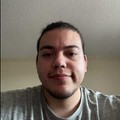Math has always been more than just numbers and equations to me, it’s a language of logic, patterns, and endless possibilities. I love math because it challenges me to think critically, analyze problems from different angles, and find precise solutions. Every equation is a puzzle, and every problem solved gives me a sense of accomplishment and confidence.
What fascinates me most about math is its universality. No matter where you are in the world, two plus two will always equal four. Math transcends cultures, languages, and borders, making it a powerful tool for connection and innovation. Whether it's calculating the trajectory of a rocket, predicting stock market trends, or developing algorithms for technology, math plays a crucial role in the advancements shaping our future.
As a Management & Technology major at Bowling Green State University, I use math daily to analyze data, manage budgets, and study algorithms. My love for math has fueled my passion for entrepreneurship, particularly in developing digital applications to support children with autism and individuals dealing with mental health challenges. From designing user-friendly interfaces to measuring outcomes through data, math is at the heart of creating impactful, effective solutions.
Math teaches me perseverance, discipline, and creativity. It sharpens my mind and pushes me to always look for better, more efficient ways to solve problems. It’s not just something I study; it’s something I rely on to build a better future for myself, my family, and my community. That’s why I love math.
Mathematics – its complex syllables caressing my auditory senses as I indulge in a world filled with nuances, numbers, and perplexing calculations. To be indubitably clear, math is not merely a subject to me. It reminds me of a historical tale: my historical tale. Today, as I solve trigonometric equations or determine the directrix of conic sections, I can’t help but form recollections of the times when I sat in my father’s lap as we reviewed shapes, numbers, and letters – back when times were simple and easygoing with just me, my dad, and the beginning of a satisfying sensation that later turned into a fiery passion for equations, graphs, and theories.
In essence, I can’t remember a single math session with my father where he didn’t mention his grandfather. You see, my dad’s grandfather was a mathematician. His inability to solve a math equation was nonexistent. He performed complex calculations in seconds, whereas it would’ve taken others hours to complete. I believe my father’s strive for academic excellence stemmed from the prestigious accomplishments of my great-grandfather. But soon, the pursuit of academic excellence in mathematics was presumed unto me. I no longer considered mathematics my haven; in fact, it became a threatening fortress, one that I hid away from behind a foliage of grass and tree stumps.
From the ages of eight to twelve, my father sat me behind our dinner table to go through the Georgia core curriculum of mathematics. My head crammed information regarding linear equations and measures of center before it could fit no more. My tears soaked my crinkled worksheets until my father finally dismissed me. For a long duration of time, I could not understand why my father kept pushing and striving me for success in this subject. Why couldn’t I have focused on the works of Shakespeare, the victories of the late Napoleon, or the discovery of DNA?
“Math is more important,” he would repeat sternly. But why?
Years later, I soon identified his why. Math surrounds us inexplicably in all we do. Math can be traced through my history – through the connection with my great-grandfather who I never had the privilege of meeting. It reverberates throughout the world in a universal language in which we all can reach the same answer even through different means. Math is my love and our answer to the ever-continuing mystery that is life.
"If God has a language, it would be Math", those are the words my Dad uses to explain the complex logical and interconnected equations that are math. A map of completely logical equations just waiting for us to discover them and their applications in life.
In a world where it seems everything is created to deceive, the logical connections found in math are refreshing! Math is not what I would describe as my strong suit in school, but the real-world applications in topics such as Geometry and Statistics intrigued me into exploring math more in-depth.
Science may be the answer to our problems, but what is Science without Math? I am an incoming Freshman this fall at Colorado State University as a Wildlife Biology major. My career goals are extensive and they all consist of math in one way or another.
The goal of preserving Biodiversity hotspots will require me to create mathematical population models to analyze certain species populations in a region to determine their protection needs and discover whether the protections that I enact are working in the region. Growth or decline rates for species will lead my work by helping determine what level of protection is necessary for a species and measure population changes. Statistics will be my guiding principle for what is known to have worked, what may work and to measure my success.
Math is not only God's language, but the language that allows information to be shared with the public in a way that makes sense and can build compassion and caring in the public eye for the habitats I will fight to protect, many of which have never been seen by those in other countries like the US. Presenting people with statistics on what works, what needs to be done, and the proven ways they can help is a great way to involve individuals globally.
Science, and its close twin Math, are the answers to our problems. Together, with the knowledge of these topics, change can be enacted and our world can be brought to a sustainable future in which future generations can thrive.
Is it a coincidence that Math ("God's language") is the answer to Earth's struggles?




















